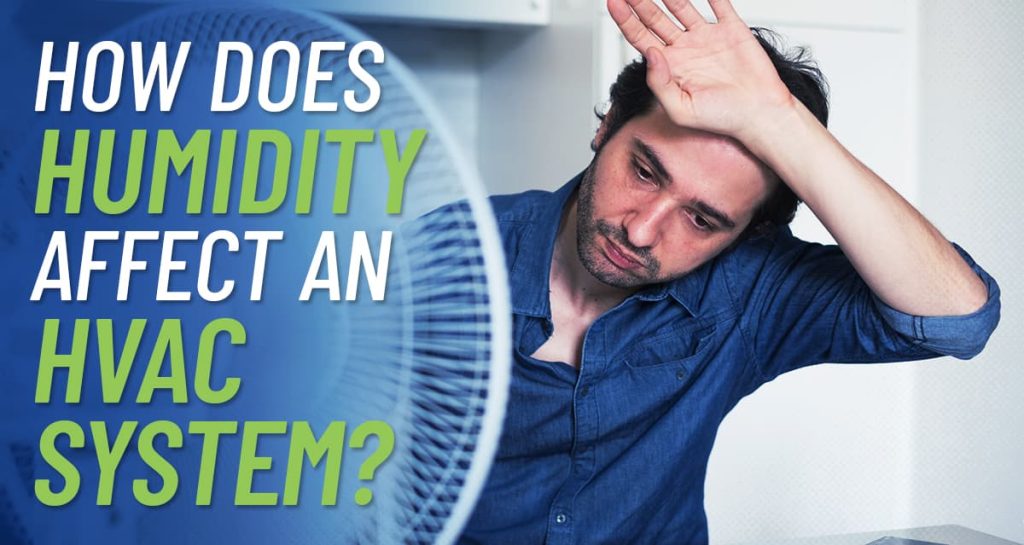Humidity – the amount of moisture in the air – plays a big role in our comfort levels. For example, when it’s hot and humid, it feels even hotter than the temperature says it is. Sticky, muggy, and uncomfortable. And if it’s cold and dry, it can feel much colder than it actually is – plus you may experience dry skin, chapped lips, and sore throats. Just like humidity affects us, it can also impact your HVAC system’s performance.
How Humidity Impacts Your AC
Air conditioning works by not only cooling the air but also by removing moisture from the air. If it is very humid, there is too much moisture in the air, and your AC may struggle to keep up. This can leave your house feeling warm and muggy and lead to higher energy bills.
Is the Humidity in Your Home Too High?
If your home has a problem with too much moisture, your AC may not be to blame. If you notice condensation on your windows, have mold or mildew anywhere in your house, notice a musty smell, have wet spots on ceilings or walls, or a damp basement, you likely have water vapor or seepage issues. Instead of repairing or replacing your AC, you may just need a dehumidifier to help reduce the water in the air and improve your AC’s performance. You should also check your house for plumbing leaks or cracks where moisture might be coming in, and ensure your home has proper ventilation.
How Humidity Impacts Your Heating System
While your AC removes humidity from the air as it cools, your heating system does not add moisture to the air as it heats. As a result, when your home is too dry, it won’t heat adequately, meaning that your furnace will have to work harder to warm the air (again, overworking your system and increasing energy bills).
Is the Humidity in Your Home Too Low?
If your house isn’t heating adequately, or you are suffering from dry, itchy skin, scratchy throats, or notice lots of static electricity in the air (shocking!), the air is likely too dry. You can get a humidifier/vaporizer to add moisture to the air in specific rooms or look into a whole-house humidifying system to help.
Become an HVAC Technician
If you’re interested in how HVAC systems work and would like a rewarding career where you are helping people feel comfortable in their homes, J-Tech Institute can put you on the path to success. Check out our HVAC-R Technician Training Program and get the hands-on training you need to succeed.
